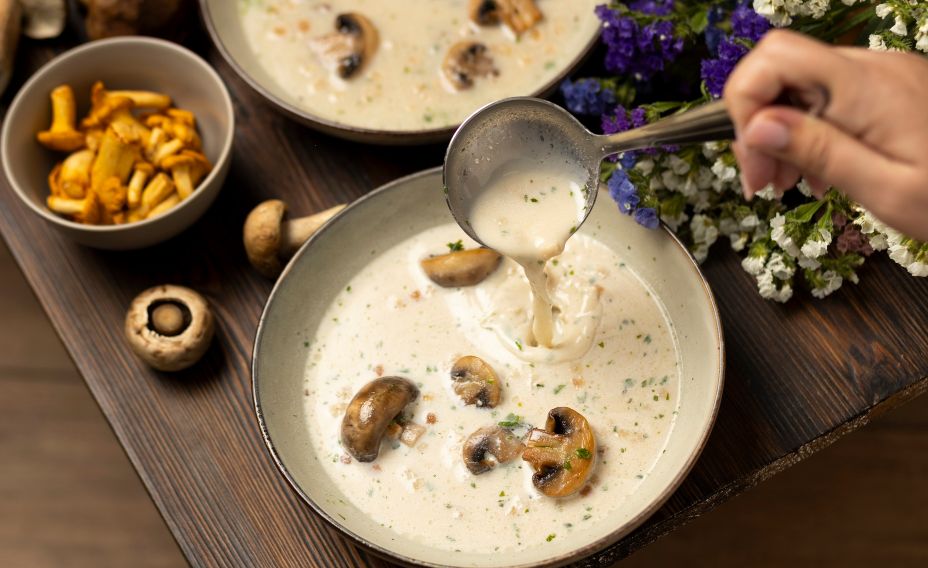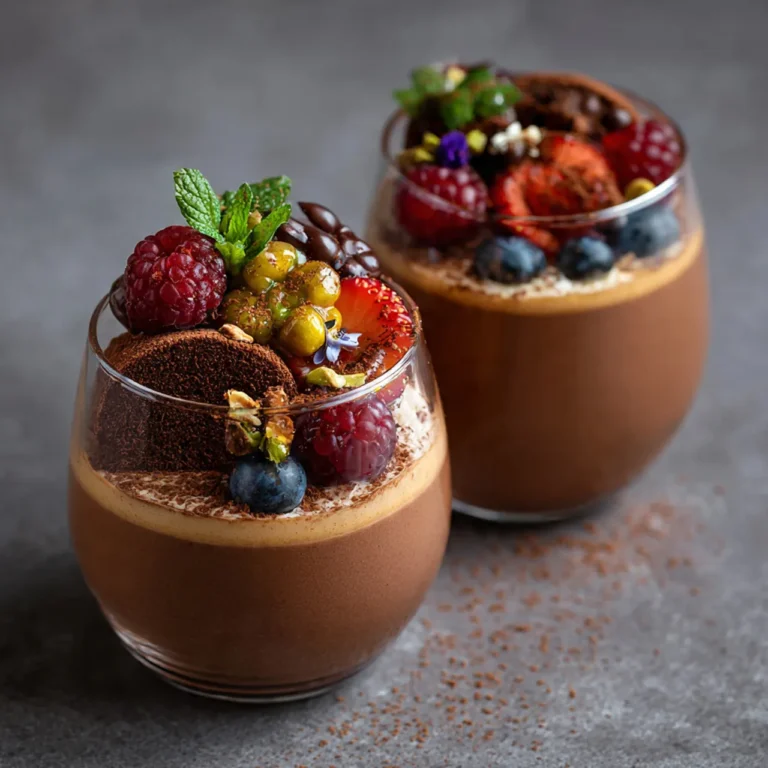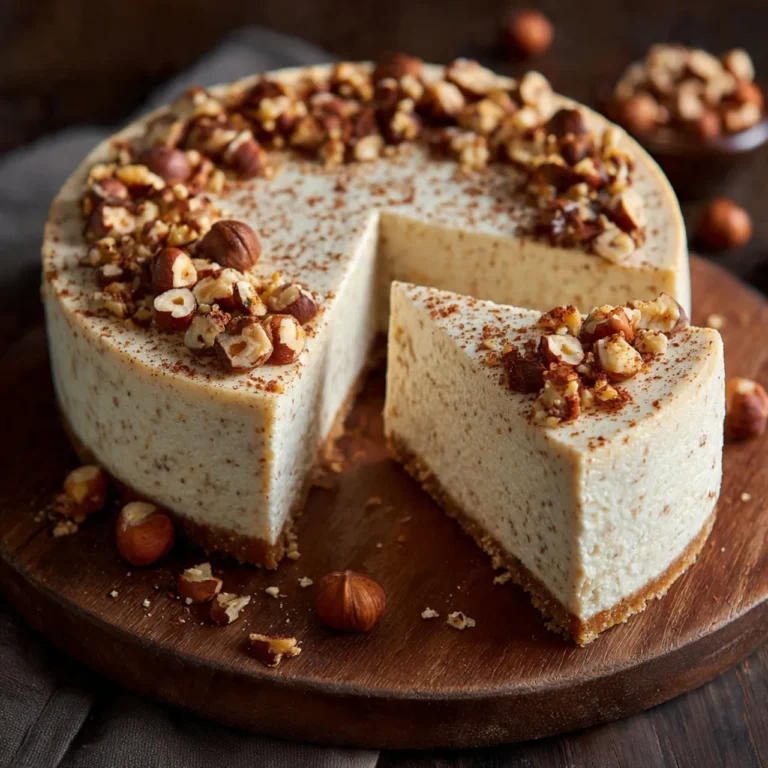Goat Water, affectionately known as “kiddy stew,” stands as a celebrated dish in the Caribbean, especially in Montserrat, a charming island nestled in the Lesser Antilles. This robust stew has woven itself into the fabric of Montserratian cuisine, often gracing tables at social events, festive celebrations, and notably during the annual St. Patrick’s Day festival, a vibrant commemoration of a historic slave uprising in 1768.
Ingredients:
- Goat Meat: As the star of the dish, goat meat imparts a unique and savory flavor.
- Herbs and Spices: Cooks typically season the meat with thyme, garlic, onions, and a blend of local spices.
- Vegetables: The stew often includes carrots, potatoes, and sometimes other hearty root vegetables.
- Flour: This ingredient plays a crucial role in thickening the stew.
- Water or Broth: Forms the base of the stew.
- Cloves and Other Spices: These add an extra layer of complexity to the flavor.
Preparation:
- Marinating the Goat: Initially, chefs marinate the goat meat with herbs and spices, allowing it to absorb the flavors for several hours or even overnight.
- Browning the Meat: Next, they brown the marinated meat in a heavy pot, sealing in the flavors.
- Cooking the Stew: Then, they add water or broth, vegetables, and more spices, letting the stew simmer until the meat becomes tender.
- Thickening the Mix: Finally, flour is stirred in to give the stew its signature hearty consistency.
Cultural Significance:
- Historical Roots: Interestingly, Goat Water combines African and Irish culinary traditions, mirroring the island’s diverse history.
- Community and Celebration: Moreover, this dish serves as a symbol of unity and festivity, often bringing the community together.
- Adaptability: While traditionally featuring goat, the recipe sometimes adapts to include other meats, depending on availability.
Serving:
Typically, people enjoy Goat Water hot, frequently pairing it with bread or rice. Renowned for its rich, spicy flavor, many in Montserrat and other Caribbean communities cherish it as a comfort food.
What is Goat Water?
Goat Water is a traditional stew that originates from Montserrat, a small island in the Caribbean. It’s a popular and culturally significant dish in Montserratian cuisine, often served at social gatherings, celebrations, and particularly during the island’s annual St. Patrick’s Day festival.
Key Characteristics of Goat Water:
- Main Ingredient: As the name suggests, the primary ingredient in Goat Water is goat meat, valued for its rich, distinctive flavor.
- Flavor Profile: The stew is known for its hearty and spicy taste. It’s seasoned with a variety of herbs and spices, including thyme, garlic, and onions, which contribute to its unique flavor.
- Additional Ingredients: Besides goat meat, the stew typically contains vegetables like carrots and potatoes, and it’s thickened with flour to give it a robust consistency.
- Cultural Significance: Goat Water is more than just a dish in Montserrat; it’s a part of the island’s cultural identity. It reflects a blend of African and Irish culinary traditions, mirroring the diverse history of Montserrat.
- Preparation: The preparation process usually involves marinating the goat meat in spices, browning it, and then simmering it with vegetables and broth until tender. The stew is thickened towards the end of cooking.
- Serving: It’s commonly served hot and is often accompanied by bread or rice. The stew is especially popular during festive occasions and is considered a comfort food by many.
In summary, Goat Water is a flavorful, spicy stew made primarily with goat meat, vegetables, and a blend of herbs and spices. It holds a special place in the hearts of Montserratians, symbolizing their cultural heritage and community spirit.
The Culinary Journey of Goat Water
Goat Water, a quintessential dish of Montserrat, takes us on a fascinating culinary journey that intertwines history, culture, and flavor. This traditional stew, deeply rooted in the Caribbean island’s heritage, is much more than a mere recipe; it’s a symbol of Montserrat’s identity and communal spirit.
Historical Origins:
Goat Water’s origins trace back to the blending of African and Irish culinary traditions, a reflection of Montserrat’s diverse historical tapestry. The island, often called the “Emerald Isle of the Caribbean” due to its Irish influences, has seen this dish evolve from a simple, hearty meal for laborers to a celebrated symbol of national cuisine.
Ingredients and Preparation:
At its core, Goat Water is a robust stew made primarily with goat meat, known for its rich and slightly gamey flavor. The meat is marinated in a mix of local herbs and spices, such as thyme, garlic, and onions, infusing it with a depth of flavor. Root vegetables like carrots and potatoes add heartiness, while flour is used to thicken the stew, creating a satisfying texture.
The preparation of Goat Water is a slow, careful process. The marinated goat meat is first browned, then simmered with vegetables and broth until tender. This slow cooking method allows the flavors to meld beautifully, resulting in a stew that is both flavorful and comforting.
Cultural Significance:
Goat Water is more than just a dish; it’s a part of Montserrat’s cultural fabric. It’s commonly served at important social events and celebrations, notably during the St. Patrick’s Day festival, a unique blend of Irish and Caribbean traditions. This festival, among others, showcases Goat Water as a culinary centerpiece, bringing communities together.
Modern Adaptations:
While traditional Goat Water remains popular, contemporary variations have emerged. Some chefs experiment with different meats or add unique spices, reflecting the dynamic nature of Caribbean cuisine. However, the essence of the dish – its rich, spicy flavor and communal appeal – remains unchanged.
Serving and Enjoyment:
Typically served hot, Goat Water is often accompanied by bread or rice, making it a hearty and satisfying meal. It’s especially cherished during cooler months or festive occasions, providing warmth and a sense of togetherness.
Nutritional Value of Goat Water
Goat Water, the traditional stew from Montserrat, is not only rich in flavor but also offers a range of nutritional benefits, thanks to its wholesome ingredients. Here’s a breakdown of the nutritional value of Goat Water, focusing on its primary components:
1. Goat Meat:
- Protein: Goat meat is a great source of lean protein, essential for muscle growth and repair.
- Iron: It’s rich in iron, which is crucial for blood health and energy levels.
- Low in Fat: Compared to other red meats, goat meat is lower in fat, making it a healthier choice for those monitoring their fat intake.
- Vitamins and Minerals: It contains B vitamins, particularly vitamin B12, and minerals like zinc and phosphorus.
2. Vegetables (Carrots, Potatoes, etc.):
- Fiber: Vegetables like carrots and potatoes add dietary fiber to the stew, aiding in digestion and promoting gut health.
- Vitamins: They are a good source of vitamins, including vitamin A from carrots, which is important for vision and immune function.
- Minerals: Potatoes contribute potassium, which is vital for heart health and muscle function.
3. Herbs and Spices (Thyme, Garlic, Onions):
- Antioxidants: These ingredients are rich in antioxidants, which help combat oxidative stress and may reduce the risk of chronic diseases.
- Anti-inflammatory Properties: Garlic and onions have anti-inflammatory properties, contributing to overall health and wellness.
4. Flour (for Thickening):
- Carbohydrates: Flour adds carbohydrates to the stew, providing energy.
- Gluten Consideration: For those with gluten sensitivities, alternative thickeners like cornstarch can be used.
Nutritional Summary:
- Caloric Content: Goat Water is relatively high in calories due to the meat and flour, but it’s also very filling and nutritious.
- Balanced Meal: It offers a good balance of protein, carbohydrates, and essential nutrients, making it a wholesome meal option.
- Customizable: The nutritional content can vary based on the specific recipe and portion sizes. Adjustments can be made to suit dietary needs or preferences.
The Science Behind Cooking Goat Water
Cooking Goat Water, the traditional Montserratian stew, involves a fascinating interplay of culinary science and technique. Understanding the science behind its preparation can enhance both the flavor and nutritional value of the dish. Here’s a look at the key scientific principles at play in cooking Goat Water:
1. Marinating the Goat Meat:
- Chemical Tenderization: The marination process often includes acidic components like citrus juices or vinegar. These acids help in breaking down the proteins in the meat, making it more tender.
- Flavor Infusion: The herbs and spices used in the marinade also penetrate the meat during this process, infusing it with deep flavors.
2. Browning the Meat (Maillard Reaction):
- Maillard Reaction: When you brown the goat meat, the Maillard reaction occurs. This is a chemical reaction between amino acids and reducing sugars that gives browned foods their desirable flavor. It’s essential for developing the deep, complex flavors in the stew.
- Heat Management: Proper heat management is crucial here. Too high heat can burn the meat, while too low heat can lead to boiling rather than browning.
3. Simmering the Stew:
- Collagen to Gelatin Conversion: Goat meat is rich in collagen, which, when cooked slowly at low temperatures, converts into gelatin. This process adds a rich, silky texture to the stew.
- Flavor Melding: Slow cooking allows for the flavors from the meat, vegetables, herbs, and spices to meld together, creating a harmonious and well-rounded taste.
4. Thickening with Flour:
- Gelatinization of Starches: Flour is used to thicken the stew. When flour is added to the liquid, the starch granules absorb water and swell, thickening the stew. This process is known as gelatinization.
- Roux Formation: Sometimes, the flour is cooked with fat at the beginning (forming a roux), which adds a nutty flavor and helps in even thickening without clumps.
5. Vegetable Cooking:
- Texture and Nutrient Retention: Adding vegetables at the right time is crucial. Overcooking can lead to loss of nutrients and texture, while undercooking can leave them too hard.
6. Balancing Flavors:
- Acid and Salt: Adjusting the levels of acidity and saltiness can significantly change the flavor profile of the stew. Acids (like vinegar or tomato) and salt are flavor enhancers, helping to balance and bring out the stew’s flavors.
Goat Water and Dietary Restrictions
Goat Water, the traditional stew from Montserrat, is a flavorful and hearty dish. However, when considering dietary restrictions, it’s important to understand how this dish aligns with various dietary needs and preferences. Here’s an overview of Goat Water in the context of common dietary restrictions:
1. Red Meat Restrictions:
- Primary Ingredient: Goat meat is the main component of Goat Water. For those who avoid red meat due to dietary preferences, health reasons, or religious practices, this dish may not be suitable.
- Alternative Options: Some variations might use chicken or fish, but these significantly alter the traditional flavor profile.
2. Vegetarian and Vegan Diets:
- Meat-Based: As a meat-based stew, Goat Water is not suitable for vegetarians or vegans.
- Plant-Based Alternatives: Creative adaptations using hearty vegetables or plant-based meat substitutes could be explored, though this would be a significant departure from the traditional recipe.
3. Gluten Sensitivity or Celiac Disease:
- Thickening Agent: Traditional Goat Water uses flour as a thickening agent, which contains gluten.
- Gluten-Free Alternatives: To make it gluten-free, alternative thickeners like cornstarch or a gluten-free flour blend can be used.
4. Lactose Intolerance:
- Lactose-Free: Goat Water is typically lactose-free, as it doesn’t contain milk or dairy products, making it suitable for those with lactose intolerance.
5. Low-Fat or Low-Cholesterol Diets:
- Lean Meat: Goat meat is relatively lean compared to other red meats, which can be beneficial for those on low-fat or low-cholesterol diets.
- Preparation Adjustments: Skimming off fat during the cooking process or using lean cuts can further reduce fat content.
6. Allergies and Sensitivities:
- Common Allergens: Goat Water is generally free from common allergens like nuts, soy, and seafood, but it’s always important to consider individual ingredients used in preparation.
- Cross-Contamination: For those with severe allergies, cross-contamination in the kitchen should be a consideration.
7. Low-Sodium Diets:
- Salt Content: The salt content in Goat Water can be high, especially if prepared traditionally.
- Modifications: Reducing the amount of added salt or using low-sodium broth can make it more suitable for low-sodium diets.
Goat Water as Comfort Food
Goat Water, a traditional stew from Montserrat, holds a special place in the hearts of many as a quintessential comfort food. This status is not just due to its rich, hearty flavors but also because of the emotional and cultural connections it evokes. Here’s a closer look at why Goat Water is considered a comfort food:
1. Warm and Hearty:
- Satisfying Nature: The stew is rich, filling, and warming, making it particularly appealing during colder months or when one seeks a comforting meal.
- Rich Flavors: The depth of flavors from the goat meat, combined with the blend of herbs and spices, creates a satisfying and comforting taste experience.
2. Cultural Significance:
- Connection to Heritage: For those from Montserrat and the wider Caribbean community, Goat Water is more than just a dish; it’s a reminder of home and heritage. This emotional connection enhances its comfort food status.
- Festive Associations: Often served at celebrations and gatherings, the stew is associated with happy memories, reinforcing its role as a comfort food.
3. Nourishing Ingredients:
- Nutritional Value: Made with goat meat, vegetables, and spices, Goat Water is not only flavorful but also nutritious, providing protein, vitamins, and minerals.
- Wholesome Meal: It’s a balanced dish that offers a combination of protein, carbohydrates, and essential nutrients, contributing to its nourishing qualities.
4. Social Aspect:
- Shared Experience: Traditionally, Goat Water is a dish meant to be shared with family and friends, enhancing its comforting appeal. The act of sharing a meal can be as comforting as the food itself.
- Community Connection: In Montserratian culture, preparing and eating Goat Water is often a communal activity, fostering a sense of belonging and togetherness.
5. Versatility and Adaptability:
- Customizable: While there is a traditional way to prepare Goat Water, the recipe is adaptable, allowing individuals to adjust it to their taste preferences, which adds to its comfort food appeal.
- Variations: Different households may have their own versions or secret ingredients, adding a personal touch that can evoke nostalgia and comfort.
Goat Water in Health and Wellness
Goat Water, the traditional stew from Montserrat, is not only a culinary delight but also has various aspects that can contribute positively to health and wellness. When considering its ingredients and preparation, Goat Water can be a nutritious addition to a balanced diet. Here’s an exploration of its health and wellness benefits:
1. Nutrient-Rich Ingredients:
- Lean Protein: Goat meat, the primary ingredient, is a good source of lean protein, essential for muscle building and repair.
- Iron and Minerals: Goat meat is also rich in iron, which is crucial for maintaining healthy blood cells, and contains other minerals like zinc and phosphorus.
- Vegetables: The inclusion of vegetables like carrots and potatoes adds vitamins, minerals, and dietary fiber, contributing to overall nutrient intake.
2. Low in Fat and Cholesterol:
- Healthier Red Meat Option: Compared to other red meats, goat meat is lower in saturated fat and cholesterol, making it a healthier option for those concerned about heart health.
3. Rich in Collagen and Gelatin:
- Joint Health: The slow cooking of goat meat, particularly the bones, releases collagen and gelatin, which are believed to support joint health.
- Skin and Hair Health: Collagen is also beneficial for maintaining healthy skin and hair.
4. Spices and Herbs:
- Antioxidants: The herbs and spices used in Goat Water, such as garlic, thyme, and onions, are known for their antioxidant properties, which can help combat oxidative stress.
- Anti-inflammatory Benefits: Many of these ingredients also have anti-inflammatory properties, potentially benefiting overall health.
5. Digestive Health:
- Fiber Content: The vegetables in the stew provide dietary fiber, which is important for digestive health.
- Gut Health: The gelatin from the slow-cooked meat can aid in gut health and digestion.
6. Adaptability for Healthier Versions:
- Customizable: The recipe can be adapted to reduce salt or fat content, making it suitable for various dietary needs.
- Alternative Thickeners: For those with gluten sensitivities, gluten-free flour or cornstarch can be used as a thickener.
7. Mental and Emotional Well-being:
- Comfort Food: As a comfort food, Goat Water can provide psychological comfort and a sense of well-being, which is an important aspect of overall health.
Conclusion: The Future of Goat Water
The future of Goat Water, the iconic stew from Montserrat, looks promising and adaptable, reflecting both the resilience and the evolving nature of culinary traditions. As we look ahead, several factors suggest how Goat Water might continue to thrive and adapt in a changing world.
1. Cultural Preservation and Global Interest:
- Cultural Heritage: As a symbol of Montserratian culture, efforts to preserve and celebrate Goat Water are likely to continue, keeping the tradition alive for future generations.
- Global Cuisine: Increasing interest in global cuisines and authentic culinary experiences may lead to wider recognition and appreciation of Goat Water beyond the Caribbean.
2. Health and Dietary Trends:
- Health-Conscious Adaptations: With growing awareness of health and nutrition, there may be a trend towards preparing healthier versions of Goat Water, using leaner cuts of meat and more vegetables.
- Dietary Inclusivity: Adapting the recipe to cater to various dietary restrictions (like vegetarian or vegan versions) could make Goat Water accessible to a broader audience.
3. Sustainability and Ethical Eating:
- Sustainable Farming: As sustainability becomes a more pressing concern, sourcing goat meat from ethical and sustainable farms could become a priority for both chefs and home cooks.
- Local Sourcing: Emphasizing local ingredients and traditional cooking methods can also contribute to sustainability efforts.
4. Innovation in Cooking Techniques:
- Modern Cooking Methods: Incorporating modern cooking techniques and equipment, like pressure cookers or slow cookers, could make the preparation of Goat Water more accessible and convenient.
- Fusion Flavors: Chefs might experiment with fusion recipes, combining traditional Goat Water elements with flavors and techniques from other cuisines.
5. Community and Social Aspects:
- Social Gatherings: Goat Water is likely to remain a staple at community events and family gatherings, reinforcing its role in social bonding and cultural identity.
- Food Tourism: Montserrat and other Caribbean islands may leverage their culinary heritage, including Goat Water, to attract food tourists seeking authentic experiences.
Conclusion:
The future of Goat Water appears to be a dynamic blend of preservation and evolution. On one hand, it steadfastly maintains its status as a Montserratian staple, deeply rooted in tradition. On the other hand, there’s a clear potential for adaptation and evolution, ensuring it resonates with modern tastes and values.
Importantly, through health-conscious adaptations, Goat Water can align with contemporary nutritional preferences. Additionally, by embracing sustainable practices, it can reflect the growing global emphasis on ethical eating. Furthermore, culinary innovation could introduce new dimensions to this classic dish.
Consequently, with these developments, Goat Water is well-positioned to continue as a cherished and relevant element of Caribbean cuisine.






